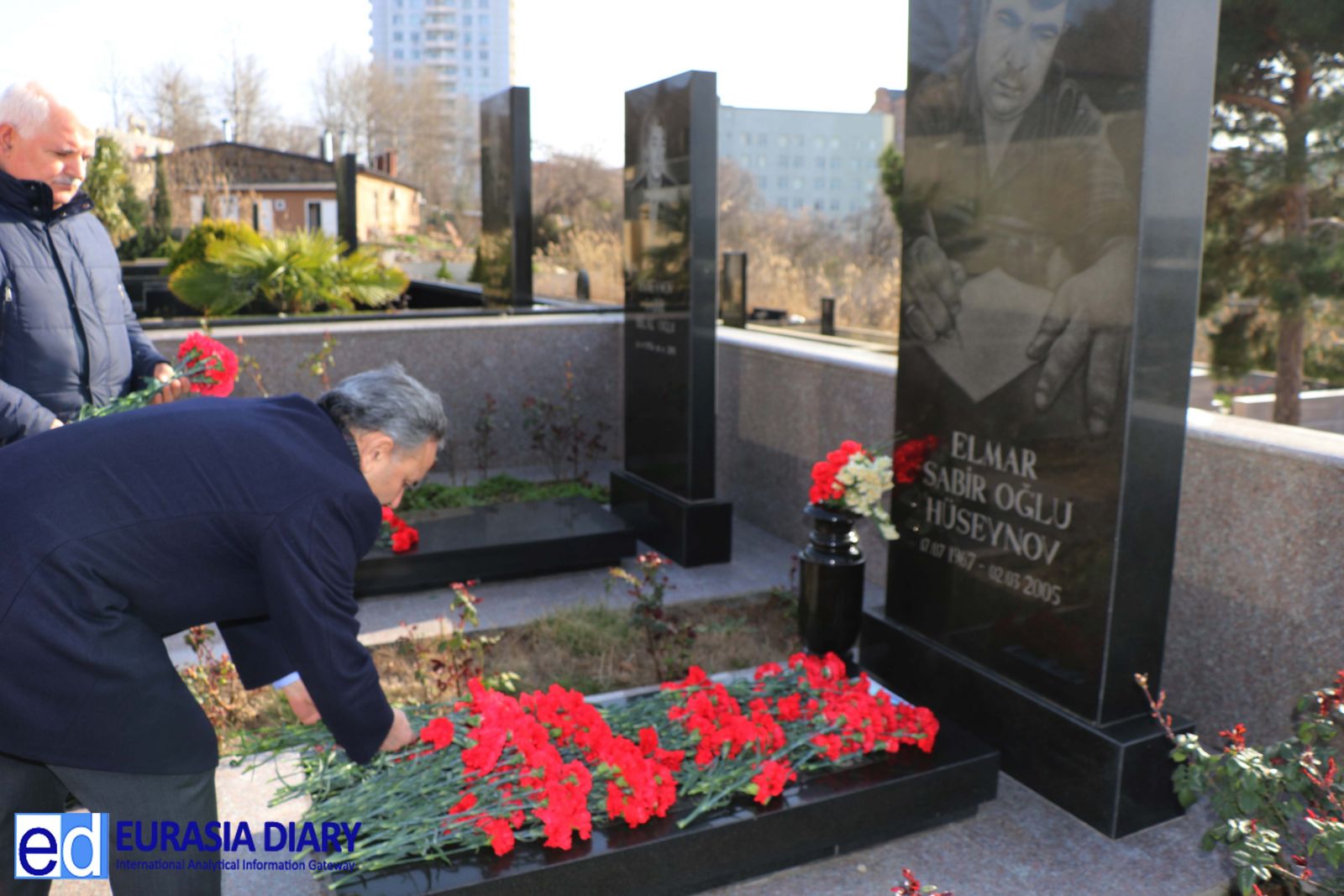The International Press Institute (IPI) today marked 11 years since the murder of Azerbaijani journalist Elmar Huseynov with a call on the country’s government to end impunity for attacks on journalists and to release those imprisoned in connection with their work.
Huseynov, the editor-in-chief of Russian language magazine Monitor was gunned down on March 2, 2005 in the stairwell of his apartment building in the Azerbaijani capital Baku. According to local media, authorities say that a Georgian citizen was responsible for the murder, but no one has yet been arrested in the killing.
In Baku, IPI Executive Board Member Umud Rahimoglu, who heads IPI’s Azerbaijan National Committee and serves as vice-chair of Azerbaijan’s Press Council, joined Press Council Chair Aflatun Amashov in marking the anniversary of Huseynov’s death yesterday with a visit to his grave.
Huseynov is one of two journalists killed in Azerbaijan in the last dozen years whose deaths remain unsolved. The other is Rafiq Tagi, who died in a hospital in November 2011 four days after a brutal stabbing attack.
No suspects have been apprehended in the Tagi’s murder, although he said while hospitalised that he believed he had been targeted for an opinion piece critical of the Iranian government that he had written earlier that month. Tagi had been the subject of a fatwa by an Iranian Grand Ayatollah since 2006 calling for his death for allegedly insulting Islam in his writing.
“The failure to bring the perpetrators of the attacks on Elmar Huseynov and Rafiq Tagi to justice sends a continuing message that there is little to no consequence for attacks on journalists, thereby emboldening would-be assailants,” IPI Director of Advocacy and Communications Steven M. Ellis said. “As long as killers walk free, all journalists – and press freedom itself – remain under threat.”
Another journalist, Rasim Aliyev, was beaten to death in August 2015 after he posted criticism of popular football player Javid Huseynov’s conduct towards a Cypriot journalist and others during a match on Facebook and called for Huseynov to be banned from European football. A group of five of Huseynov’s friends and family members are currently on trial for the murder and Huseynov faces a charge of failing to report a planned crime, although Aliyev’s colleagues suspect Huseynov of having masterminded the attach.
Azerbaijan has been the subject of stinging international criticism in recent years over what western officials and international observers describe as an ongoing crackdown on media outlets that criticise the government or President Ilham Aliyev. Many journalists have complained of being targeted by threats, harassment and violence in recent years, and a number of others are currently imprisoned, with many observers believing charges to represent retaliation for their work.
The most emblematic case is that of investigative journalist Khadija Ismaiyilova, who in September 2015 was sentenced to seven-and-a-half years in prison on charges of tax evasion, illegal business activity and abuse of power. Ismaiyilova’s supporters maintain that her imprisonment came in retaliation for her articles exposing alleged corruption implicating President Ilham Aliyev and his family, and her ongoing detention has been widely denounced.
